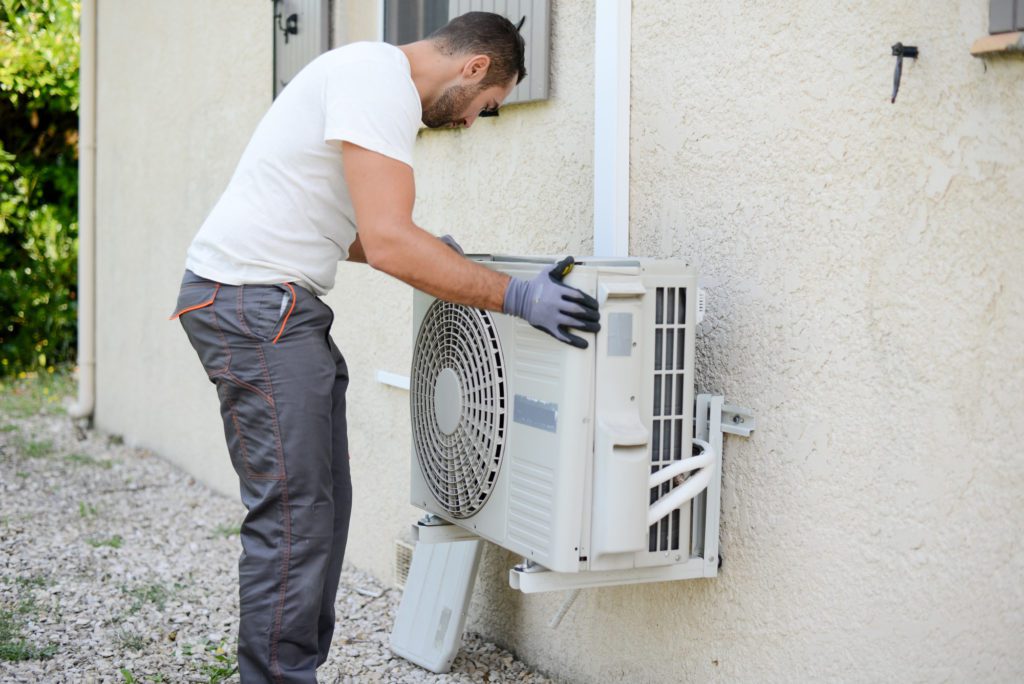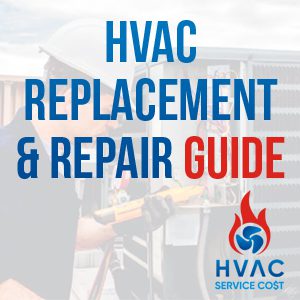
Should You Replace Your HVAC Before It Breaks Down? Here’s What You Need to Know
Your HVAC (Heating, Ventilation, and Air Conditioning) system is a critical component of your home, responsible for maintaining a comfortable indoor environment year-round. However, like any mechanical system, HVAC units have a finite lifespan, and there comes a time when you need to decide whether to repair or replace them. A common question homeowners face is whether they should wait for their HVAC system to break down completely before replacing it or opt for a proactive replacement. In this blog, we’ll explore the factors you should consider when making this decision and provide insights to help you determine the best course of action for your home.
The Lifespan of an HVAC System
The average lifespan of an HVAC system varies depending on the type of system, its maintenance history, and how frequently it’s used. On average:
- Furnaces typically last between 15 and 20 years.
- Air conditioners and heat pumps generally last around 10 to 15 years.
- Boilers can last 15 to 30 years, depending on the type and maintenance.
However, these are just general guidelines. Some systems may last longer with proper care, while others may fail earlier due to factors like poor maintenance, improper installation, or harsh operating conditions.
Signs of an Aging HVAC System
As your HVAC system approaches the end of its lifespan, you may notice several signs that indicate it’s time to consider replacement. These signs include:
- Increased Energy Bills: As HVAC systems age, they become less efficient, leading to higher energy consumption and increased utility bills.
- Frequent Repairs: If your system requires frequent repairs, it may be more cost-effective to replace it rather than continue investing in temporary fixes.
- Uneven Heating or Cooling: Aging systems may struggle to maintain consistent temperatures throughout your home, leading to hot or cold spots.
- Strange Noises: Unusual noises like banging, rattling, or grinding can indicate that your system’s components are wearing out.
- Poor Air Quality: An older HVAC system may have difficulty filtering and circulating air, leading to dust buildup, humidity issues, and poor indoor air quality.

The Risks of Waiting for Your HVAC System to Fail
Unexpected Breakdowns
One of the most significant risks of waiting for your HVAC system to fail before replacing it is the possibility of an unexpected breakdown. HVAC systems often fail at the most inconvenient times, such as during extreme weather conditions when they’re under the most stress. A sudden failure can leave you without heating or cooling when you need it most, leading to discomfort and potential safety hazards, especially during winter or summer extremes.
Emergency Replacement Costs
If your HVAC system fails unexpectedly, you may be forced to replace it quickly, without the opportunity to shop around for the best deal or schedule the installation at a convenient time. Emergency replacements can be more expensive than planned replacements, as you may need to pay for expedited service or settle for a less desirable system simply because it’s available immediately. Additionally, the stress of an emergency HVAC replacement can lead to rushed decisions, increasing the risk of choosing a system that doesn’t fully meet your needs.
Increased Repair Costs
As your HVAC system ages, it’s likely to require more frequent and costly repairs. While minor repairs may seem manageable, the cumulative cost of multiple repairs can quickly add up, making it more cost-effective to replace the system altogether. Additionally, older systems may require parts that are difficult to find or more expensive, further driving up repair costs.
Reduced Energy Efficiency
Older HVAC systems tend to be less energy-efficient than newer models, meaning they consume more energy to maintain the same level of comfort. This inefficiency not only leads to higher energy bills but also contributes to a larger environmental footprint. Replacing your aging system with a new, energy-efficient model can significantly reduce your energy consumption, lower your utility bills, and decrease your home’s environmental impact.

The Benefits of Proactive HVAC Replacement
Improved Energy Efficiency
One of the most compelling reasons to replace your HVAC system before it breaks down is the opportunity to improve your home’s energy efficiency. Modern HVAC systems are designed to be more energy-efficient than older models, often featuring advanced technologies like variable-speed motors, smart thermostats, and enhanced filtration systems. By upgrading to a new system, you can enjoy lower energy bills and a more comfortable indoor environment.
Enhanced Comfort
A new HVAC system can provide more consistent and reliable heating and cooling, eliminating the hot and cold spots that often plague older systems. Modern systems are also quieter and better at maintaining optimal humidity levels, contributing to a more comfortable living environment. Additionally, newer systems often come with advanced features like zoning, which allows you to control the temperature in different areas of your home independently, further enhancing comfort.
Reduced Repair Costs
By replacing your HVAC system before it fails, you can avoid the escalating repair costs associated with an aging system. While the upfront cost of a new system may seem high, it can be more cost-effective in the long run by eliminating the need for frequent repairs and reducing energy consumption. Additionally, new systems typically come with warranties that cover parts and labor, providing peace of mind and protecting your investment.
Improved Air Quality
Older HVAC systems may struggle to filter and circulate air effectively, leading to poor indoor air quality. Dust, allergens, and pollutants can accumulate in the system and be recirculated throughout your home, exacerbating allergies and respiratory issues. A new HVAC system with advanced filtration technology can improve indoor air quality by removing more contaminants and providing better ventilation. This is particularly important for households with individuals who suffer from allergies, asthma, or other respiratory conditions.
Environmental Benefits
Replacing an old, inefficient HVAC system with a newer, more energy-efficient model can significantly reduce your home’s carbon footprint. Modern systems are designed to use less energy and emit fewer greenhouse gases, contributing to a more sustainable environment. Additionally, many newer systems use refrigerants that are less harmful to the ozone layer, further reducing their environmental impact.

Factors to Consider When Deciding to Replace Your HVAC System
Age of the System
The age of your HVAC system is one of the most critical factors to consider when deciding whether to replace it. If your system is nearing or has surpassed its expected lifespan, it’s worth considering a replacement, even if it’s still functioning. While some systems may continue to operate beyond their expected lifespan, they’re likely to become less efficient and more prone to breakdowns, making replacement a wise investment.
Frequency and Cost of Repairs
Consider the frequency and cost of repairs your HVAC system has required over the past few years. If you’ve had to call a technician multiple times for costly repairs, it may be more economical to replace the system rather than continue to invest in temporary fixes. A general rule of thumb is that if the cost of repairs exceeds 50% of the cost of a new system, replacement is the better option.
Energy Efficiency
Assess the energy efficiency of your current HVAC system. If your energy bills have been steadily increasing despite consistent usage patterns, your system may be losing efficiency. Upgrading to a new, energy-efficient model can result in significant energy savings over time, offsetting the initial cost of the replacement.
Comfort and Air Quality
Consider whether your current HVAC system is providing the level of comfort and air quality you desire. If you’ve noticed uneven temperatures, excessive humidity, or poor air quality, these issues may be signs that your system is no longer performing adequately. A new system can provide better temperature control, improved humidity regulation, and enhanced air filtration, leading to a more comfortable and healthier living environment.
Environmental Impact
If you’re concerned about your home’s environmental impact, replacing an older HVAC system with a more energy-efficient model is a responsible choice. Modern systems are designed to use less energy and emit fewer greenhouse gases, making them a more sustainable option. Additionally, many new systems use eco-friendly refrigerants that have a lower impact on the environment.
Availability of Rebates and Incentives
Check for any available rebates or incentives that may apply to your HVAC replacement. Many utility companies, manufacturers, and government programs offer rebates or tax credits for installing energy-efficient systems. These incentives can significantly reduce the cost of a new HVAC system, making replacement a more attractive option.

How to Plan for an HVAC Replacement
Research and Compare Systems
Before replacing your HVAC system, take the time to research and compare different models and manufacturers. Consider factors such as energy efficiency ratings, features, warranties, and customer reviews. It’s also important to choose a system that’s appropriately sized for your home, as an undersized or oversized system can lead to inefficiency and comfort issues.
Get Multiple Quotes
Obtain quotes from several reputable HVAC contractors to compare pricing and services. Make sure the quotes include a detailed breakdown of costs, including the price of the system, installation fees, and any additional charges. Be wary of contractors who offer significantly lower prices, as this may indicate subpar equipment or installation quality.
Schedule the Replacement at a Convenient Time
Plan to replace your HVAC system during a time of year when it’s not in peak demand, such as in the spring or fall. During these seasons, HVAC contractors are typically less busy, and you may be able to secure a better deal or a more flexible installation schedule. Additionally, replacing your system during mild weather ensures that you won’t be without heating or cooling during extreme temperatures.
Consider Financing Options
If the cost of a new HVAC system is a concern, explore financing options offered by HVAC contractors, manufacturers, or third-party lenders. Many companies offer financing plans with low-interest rates or deferred payments, making it easier to manage the upfront cost of the replacement. Additionally, some manufacturers offer special promotions or discounts during certain times of the year.
Prepare Your Home for Installation
Before the installation date, prepare your home by clearing the area around the HVAC system to ensure the technicians have easy access. If necessary, arrange for pets or children to be out of the way during the installation to ensure safety and minimize disruptions. Additionally, discuss any specific concerns or preferences with the contractor beforehand to ensure a smooth and successful installation.
Deciding whether to replace your HVAC system before it breaks down is a significant decision that requires careful consideration of various factors. While it may be tempting to wait until your system fails completely, proactive replacement offers several advantages, including improved energy efficiency, enhanced comfort, reduced repair costs, and better air quality. By assessing the age, condition, and performance of your current system, as well as considering your long-term goals and priorities, you can make an informed decision that ensures your home remains comfortable and energy-efficient for years to come.




Leave a Reply